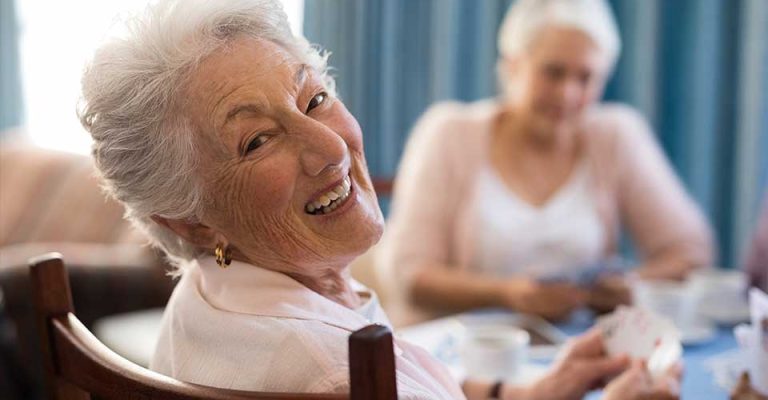
Welcome to the Topic “Rehabilitation for Alzheimer’s”
Alzheimer’s disease is a type of dementia that is well-known but often mistaken for dementia itself. While dementia is an umbrella term for any condition that damages an individual’s ability to remember, think and behave, Alzheimer’s disease is a bit more specific. Patients of Alzheimer’s disease do not only struggle with memory loss and higher executive functions but may also have difficulty in essential functions such as speech, balance, disorientation, and performing specific familiar tasks.
As a progressive disease, the symptoms may appear gradually in the affected individual rather than all at once. It is usually diagnosed at an older age; over time, the degenerative effects worsen and cause a slow decline in one’s mental capacity and quality of life. However, the possibility of a younger onset also exists.
If Alzheimer’s disease is diagnosed at the right time, it can slow the disease’s course. There is no cure for it, as the condition results from the death of brain cells. However, given that the disease was detected at a suitable time, rehabilitation teams can work to improve whatever remains of the patient’s life and slow the progression of the disease.
Medical professionals use some common rehabilitation treatments for such patients, but the program will have to be based on the patient’s individual diagnosis and information. The treatments chosen may be catered to the patient’s age, general physical health, medical history, the severity of Alzheimer’s disease, incorporation of rehabilitation into their lifestyle, and personal preference or caregivers’ concerns. All these aspects will be factored into the types of treatments a patient with Alzheimer’s disease may receive and what their rehabilitation will comprise.

One of the main concerns regarding patients with Alzheimer’s disease is their behavioral and mental changes. As their brain cells are rapidly dying, they may experience extreme changes in their thinking and mood. On top of that, the knowledge of such a diagnosis takes a toll on an individual’s mental health, even if the disease itself has not progressed enough to be mentally damaging. Another reason for these changes in the patient’s mental health may be a negative response or side effect of the medication course they may need to partake in for rehabilitation.
People with Alzheimer’s typically struggle with depression, anxiety, insomnia, irritability, and volatile moods. Hence, it is crucial to aid and facilitate these patients by helping them identify their damaging behaviors and thoughts and work with them to overcome this difficult part of their life.
A disease that causes memory loss alters the patient’s life forever. If a person is independent prior to their onset and diagnosis, they may require extra help and care to adjust to their life. Their life before the diagnosis likely needed a higher level of physical and mental functioning. Therefore, it is vital to help them figure out strategies and techniques that will help them adjust to their current condition but will not alter their life too drastically. This is where occupational therapists come in.
Depending on the age they are diagnosed and the onset of the disease, some patients may require extra help to remember how to perform even the most basic functions. The occupational therapist may introduce practical strategies such as creating new routines, writing down everything, and using specific equipment. Memory impacts all areas of a person’s life, so an occupational therapist helps the patient redefine all their systems to live independently.
Physical activity and exercise are widely known to reduce the severity of the mental decline. Research shows that incorporating physical activity into rehabilitation for Alzheimer’s patients can help to slow the eventual progression of the disease. Furthermore, at a later stage, patients with Alzheimer’s may even have trouble walking. Alzheimer’s patients are also prone to walking in their sleep, and learning how to prevent falling through physiotherapy may also be a crucial skill for them. These facts highlight the importance of physiotherapy within the rehabilitation program for Alzheimer’s patients.
Some ways to incorporate physical activity include at-home exercise, supervised training, and group activities. These would differ depending on the patient’s condition, age, and ability. For instance, an elderly patient may require supervised training, while a physically strong patient may be prescribed at-home exercise. Besides helping with slowing the progression of the disease, physical activity can also aid in bettering one’s mental health and may be used in conjunction with psychological rehabilitation as well.

Although Alzheimer’s can also be diagnosed in younger individuals, it is primarily a disease that affects the elderly. Most elderly individuals are under supervision or additional care at that stage. Alternatively, family members might be keeping a watchful eye on them. Due to this responsibility, they are likely interested in learning how to take care of their new patient. Even if they were seemingly looking after the patient just fine before onset, they need to be more informed and careful after the diagnosis.
Caregivers may be interested in helping with occupational therapy, as assisting the patient in with daily life functions is where they will be most needed. In addition, patients with Alzheimer’s disease will likely be taking additional medication, so it is the responsibility of the caregiver to administer the correct doses at the right time. Besides that, caregivers must also know what activities to refrain from and what to be mindful of regarding the patient.
Regardless of the pathology, group therapy is almost always a welcome addition to rehabilitation. When an individual is diagnosed, dealing with their pathology feels like an incredibly personal and lonely process. However, group therapy helps them realize that there are others like them who they can turn to for comfort and care. Although caregivers are readily available for these issues, people struggling with Alzheimer’s may find that they cannot share all their worries with them, as able caregivers will simply not be able to empathize with them. In contrast, joining group sessions with other patients will likely give Alzheimer’s disease patients a sense of belonging, community, and friendship with people like themselves.
Have any questions regarding the topic “Rehabilitation for Alzheimer’s” feel free to comment below.
Also Read: Stroke rehabilitation